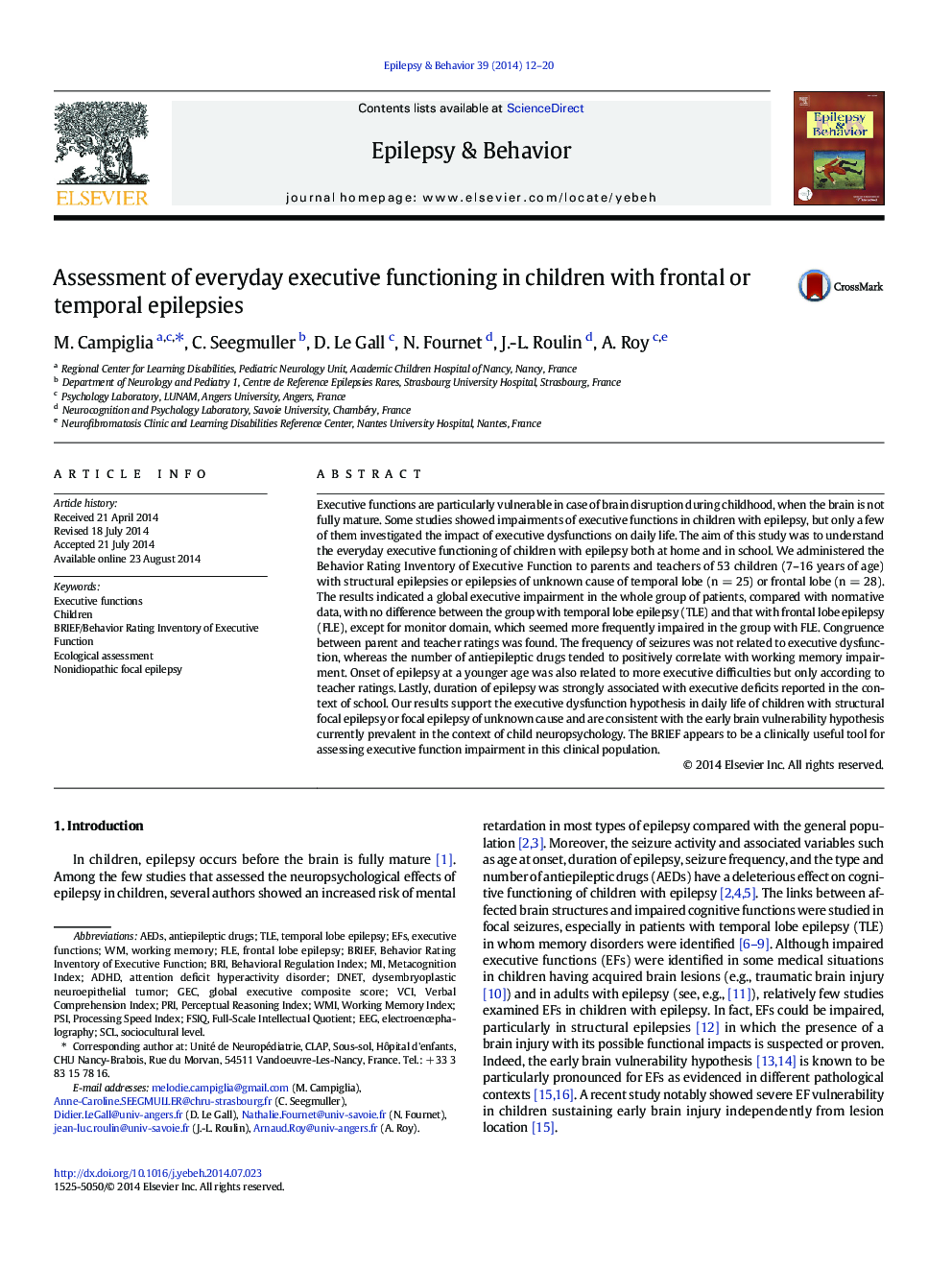| Article ID | Journal | Published Year | Pages | File Type |
|---|---|---|---|---|
| 6012116 | Epilepsy & Behavior | 2014 | 9 Pages |
â¢Children with epilepsy are likely to have executive function impairment.â¢We assessed daily life executive functions both at home and in school.â¢Some areas of executive functions are particularly impaired in epilepsy.â¢There are few differences between parent and teacher ratings.â¢Some medical variables are correlated with executive impairment.
Executive functions are particularly vulnerable in case of brain disruption during childhood, when the brain is not fully mature. Some studies showed impairments of executive functions in children with epilepsy, but only a few of them investigated the impact of executive dysfunctions on daily life. The aim of this study was to understand the everyday executive functioning of children with epilepsy both at home and in school. We administered the Behavior Rating Inventory of Executive Function to parents and teachers of 53 children (7-16 years of age) with structural epilepsies or epilepsies of unknown cause of temporal lobe (n = 25) or frontal lobe (n = 28). The results indicated a global executive impairment in the whole group of patients, compared with normative data, with no difference between the group with temporal lobe epilepsy (TLE) and that with frontal lobe epilepsy (FLE), except for monitor domain, which seemed more frequently impaired in the group with FLE. Congruence between parent and teacher ratings was found. The frequency of seizures was not related to executive dysfunction, whereas the number of antiepileptic drugs tended to positively correlate with working memory impairment. Onset of epilepsy at a younger age was also related to more executive difficulties but only according to teacher ratings. Lastly, duration of epilepsy was strongly associated with executive deficits reported in the context of school. Our results support the executive dysfunction hypothesis in daily life of children with structural focal epilepsy or focal epilepsy of unknown cause and are consistent with the early brain vulnerability hypothesis currently prevalent in the context of child neuropsychology. The BRIEF appears to be a clinically useful tool for assessing executive function impairment in this clinical population.
